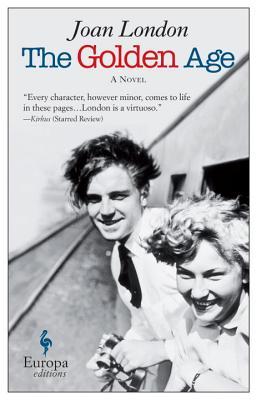When I tell friends about the book I’ve been reading, they scrunch up their faces and say that it sounds depressing. The Golden Age, by Joan London, takes place in a polio rehabilitation home for children in 1950s Western Australia. I can understand why the subject might be off-putting, but please don’t let this keep you from reading The Golden Age or you will miss out on a marvelous novel from a superb author. (And I promise, it’s not depressing!)
London’s prose is never saccharine or melodramatic. In fact, she tends toward spare, matter-of-fact writing. I appreciate this approach. It enabled me to move past the effects of the polio and allowed me to get to know the characters. This is what the children wish for most of all. They want to be seen as individuals — not just the crutches, wheelchairs, and calipers. Resourceful Frank the poet. His muse Elsa the quiet dreamer.
Of course polio does not only affect the children. Their families and caregivers in the rehabilitation home must address the long-term consequences of the illness. Some have more compassionate responses than others, but London never judges the characters. She presents their actions and lets us decide. While polio plays a central role in all of the characters’ lives, and it is the one thing with which they must come to terms, they are all ennobled by love. “Meyer sat down humbly on the white cover, next to his son’s wasted legs….This is why the human race goes on having children, he thought. To remind us of the bliss of being loved.”
It is a testament to London’s gift as a storyteller that she is able to weave this generous story about nostalgia and hope, old world and new world, and most of all, belonging and exile.
Five hearts for this one. ♥ ♥ ♥ ♥ ♥
Affiliate links are for Indiebound. If you make a purchase through this link, I’ll get a few pennies. It is no cost to you and supports independent booksellers.


